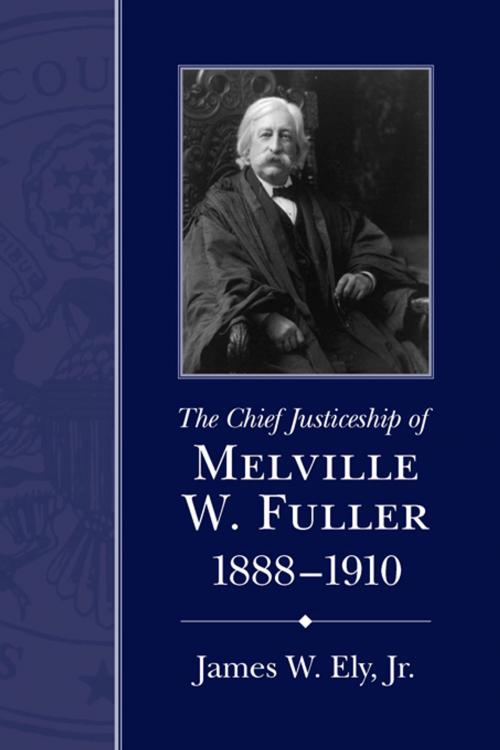The Chief Justiceship of Melville W. Fuller, 1888-1910
Nonfiction, Reference & Language, Law, Legal History| Author: | James W. Ely Jr., Herbert A. Johnson | ISBN: | 9781611171716 |
| Publisher: | University of South Carolina Press | Publication: | November 1, 2012 |
| Imprint: | University of South Carolina Press | Language: | English |
| Author: | James W. Ely Jr., Herbert A. Johnson |
| ISBN: | 9781611171716 |
| Publisher: | University of South Carolina Press |
| Publication: | November 1, 2012 |
| Imprint: | University of South Carolina Press |
| Language: | English |
In the first book in a generation to offer a fresh interpretation of the Supreme Court during the pivotal tenure of Melville W. Fuller, James Ely provides a judicial biography of the man who led the court from 1888 until 1910 as well as a comprehensive and thoughtful analysis of the jurisprudence dispensed under his leadership. Highlighting Fuller's skills as a judicial administrator, Ely argues that a commitment to economic liberty, security of private property, limited government, and states' rights guided Fuller and his colleagues in their treatment of constitutional issues. Ely directly challenges the conventional idea that the Fuller Court adopted laissez-faire principles in order to serve the needs of business. Rather, Ely presents the Supreme Court's efforts to safeguard economic rights not as a single-minded devotion to corporate interests but as a fulfillment of the property-conscious values that shaped the constitution-making process in 1787.
In the first book in a generation to offer a fresh interpretation of the Supreme Court during the pivotal tenure of Melville W. Fuller, James Ely provides a judicial biography of the man who led the court from 1888 until 1910 as well as a comprehensive and thoughtful analysis of the jurisprudence dispensed under his leadership. Highlighting Fuller's skills as a judicial administrator, Ely argues that a commitment to economic liberty, security of private property, limited government, and states' rights guided Fuller and his colleagues in their treatment of constitutional issues. Ely directly challenges the conventional idea that the Fuller Court adopted laissez-faire principles in order to serve the needs of business. Rather, Ely presents the Supreme Court's efforts to safeguard economic rights not as a single-minded devotion to corporate interests but as a fulfillment of the property-conscious values that shaped the constitution-making process in 1787.















